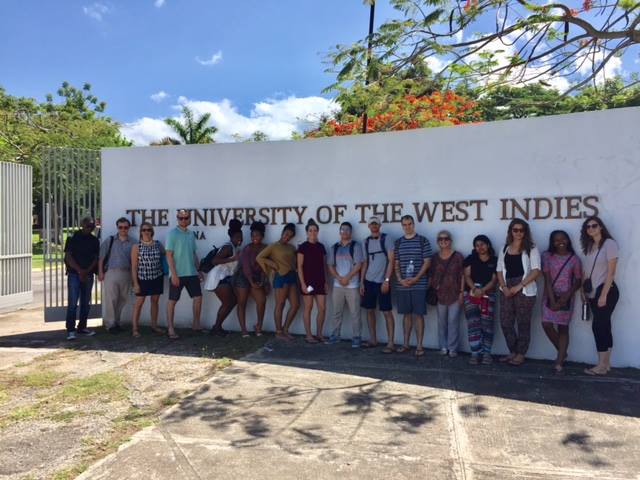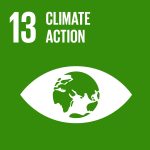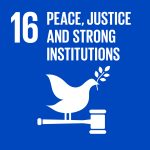Esta web utiliza cookies para que podamos ofrecerte la mejor experiencia de usuario posible. La información de las cookies se almacena en tu navegador y realiza funciones tales como reconocerte cuando vuelves a nuestra web o ayudar a nuestro equipo a comprender qué secciones de la web encuentras más interesantes y útiles.
Infusing Education for Sustainable Development into Curricula: Efforts of the School of Education at The University of the West Indies (Mona Campus, Jamaica)
Description
Institution
Organizations/areas of the university involved
Whilst different Departments/Faculties of The University of the West Indies (UWI), Mona Campus, Jamaica, are undertaking work related to the Sustainable Development Goals, this case study focuses on the work of the UWI School of Education.
Country
Jamaica
Whilst Sustainable Development Goal (SDG) Four focuses on quality education, it is clear that education underpins all of the SDGs as education is needed at all levels, in both formal and non-formal realms, to enable individuals to contribute meaningfully to peaceful, just, inclusive, equitable and sustainable societies. With this realisation in mind, the School of Education (SOE) at The University of the West Indies (Mona Campus, Jamaica) has intensified efforts since 2000 onwards to institutionalise sustainability, inclusive of efforts to infuse Education for Sustainable Development (ESD) into curricula at the undergraduate and postgraduate levels. Through these efforts, pre-service and in-service teachers are exposed to ESD knowledge, skills, values, attitudes and action oriented activities.
A focus on ESD and the SDGs is based on the realisation that sustainable development is being threatened by unsustainable relationships with self, others, and the environment. Education, therefore, with its holistic focus on knowledge, skills, values, attitudes and action, is seen as the long-term, sustainable solution in order to bring about the changed relationships that are needed to truly benefit society and planet.
Infusion took place through the following processes:
• Infusion of ESD, the SDGs, and related themes such as climate change and peace in undergraduate and postgraduate courses such as (i) Changing Cultures, Changing Schools, (ii) Education and Citizenship, (iii) Environmental Education, and (iv) Literature and Education for Sustainable Development, through case studies, analysis of literary texts, videos, songs, readings, and guest lectures. A number of these courses have community and/or school action components that involve Project-Based Learning, encouraging action competencies and community connections to address real-world issues.
• Development of a Master’s of Education Degree programme in Education for Sustainable Development, Global Citizenship, and Peace, with climate change education, conflict resolution education, and education for sustainable development among its core courses. This programme, with tracks for both formal and non-formal education, accepted its first cohort in the 2019/2020 academic year.
• Collaborative action research involving members who are part of the SOE ESD Working Group infusing ESD in their undergraduate or postgraduate course delivery during the 2018/19 academic year. Courses include Changing Cultures, Changing Schools; Environmental Education; Fundamentals of Data Analysis; History of Science and Science Teaching; Principles of Curriculum Development and Implementation; and Teacher Leadership.
Results and impact measured or expected
The key results/impact of the initiatives are:
• Strengthening of ESD content through collective infusion by faculty into undergraduate and graduate courses geared towards pre-service and in-service teachers respectively.
• Readiness for reaching individuals in the formal and non-formal education sectors through the newly developed Master’s of Education degree programme in Education for Sustainable Development, Global Citizenship and Peace.
• Enhancement of Faculty members’ SD knowledge and skills leading to collaborations and resulting from collaborations with local and international colleagues. For example, faculty members served as guest facilitators in seminars and workshops, and as participants in webinars, which focused on areas such as ESD and ESD assessment.
Connection with the SDG framework
• Teaching:
– Guest lectures in the Environmental Education course included: ‘Climate Change – An Environmental Issue?’ and ‘The Future We Want: Advancing the SDGs through Vision 2030 Jamaica’.
– A guest lecture in the Teaching the Structure of English course introduced ESD and the SDGs to students.
– Students in the History of Science and Science Teaching course were introduced to the SDGs as part of the collaborative action research project which focused on ESD infusion.
– Climate education and awareness (Target 13.3 under SDG 13), is included in courses such as (i) Environmental Education and (ii) Literature and Education for Sustainable Development.
• Programme Development:
– A focus on the SDGs is incorporated into courses in the Master’s of ESD degree programme including (i) Conflict Resolution and Violence Prevention in Education; (ii) Theories, Perspectives, and Issues in Environmental Education and Education for Sustainable Development; and (iii) Climate Change and Disaster Risk Reduction Education.
– Additionally, a focus on peace building and conflict reduction, which feeds into Target 16.1 under SDG 16, is integrated into the course Conflict Resolution and Violence Prevention in Education through a focus on the Change from Within programme, a school-based programme in Jamaica which focuses on areas such as conflict management, restorative justice, and interpersonal relationships.
Barriers and follow up
Challenges have included:
• Lack of staff members solely dedicated to ESD within the SOE. An ESD Working Group was formed by early staff members within the SOE to provide greater focus on ESD. Later, a Lecturer in ESD was appointed within the SOE to lead ESD teaching and research. The Lecturer in ESD now coordinates the efforts of the Working Group, currently comprised of ten members from various specialisations within the School.
• Lack of clear understanding of how ESD relates to individual curricula among faculty members. A collaborative approach therefore was utilised for colleagues to support each other based on their needs. Additionally, staff seminars focused on ESD infusion were also delivered.
Follow-up includes:
• Evaluating the response to the new Master’s programme in Education for Sustainable Development, Global Citizenship and Peace.
• Analysing the impact of course infusion on pre-and in-service teachers, and obtaining evidence of infusion of ESD knowledge and skills in their teaching and learning practices, and evaluating the extent of course enrichment.
• Sharing the collaborative action research project focused on course infusion with the wider SOE Faculty through staff seminars with a view to empowering other Faculty to undertake the same.
Education 4 SDG funciona gracias a WordPress



